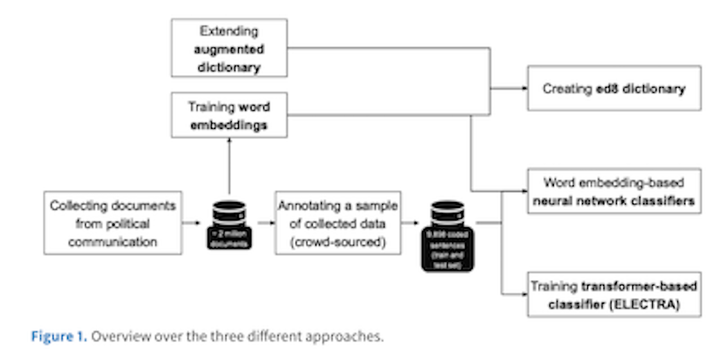Creating and Comparing Dictionary, Word Embedding, and Transformer-based Models to Measure Discrete Emotions in German Political Text

Abstract
Previous research on emotional language relied heavily on off-the-shelf sentiment dictionaries that focus on negative and positive tone. These dictionaries are often tailored to non-political domains and use bag-of-words approaches which come with a series of disadvantages. This paper creates, validates, and compares the performance of (1) a novel emotional dictionary specifically for political text, (2) locally trained word embedding models combined with simple neural-network classifiers and (3) transformer-based models which overcome limitations of the dictionary approach. All tools can measure emotional appeals associated with eight discrete emotions. The different approaches are validated on different sets of crowd-coded sentences. Encouragingly, the results highlight the strengths of novel transformer-based models, which come with easily available pre-trained language models. Furthermore, all customized approaches outperform widely used off-the-shelf dictionaries in measuring emotional language in German political discourse.